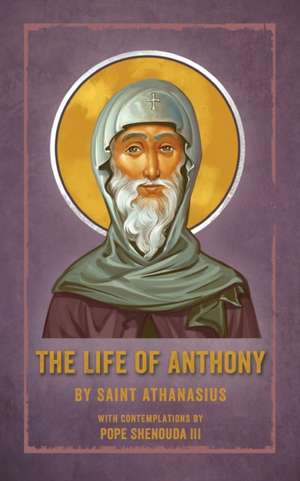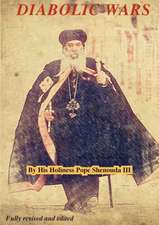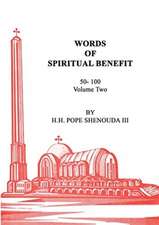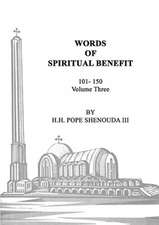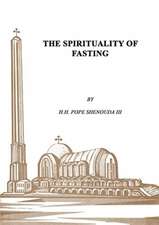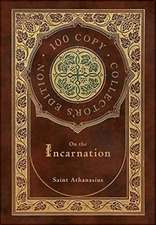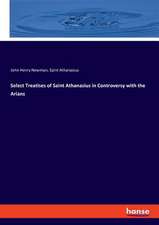The Life of Anthony
Autor Saint Athanasius, Pope Shenouda IIIen Limba Engleză Paperback – 22 mai 2020 – vârsta de la 12 ani
Preț: 76.24 lei
Nou
Puncte Express: 114
Preț estimativ în valută:
14.59€ • 15.30$ • 12.14£
14.59€ • 15.30$ • 12.14£
Carte tipărită la comandă
Livrare economică 02-16 aprilie
Preluare comenzi: 021 569.72.76
Specificații
ISBN-13: 9780648865803
ISBN-10: 0648865800
Pagini: 110
Dimensiuni: 127 x 203 x 7 mm
Greutate: 0.13 kg
Editura: St Shenouda Press
ISBN-10: 0648865800
Pagini: 110
Dimensiuni: 127 x 203 x 7 mm
Greutate: 0.13 kg
Editura: St Shenouda Press
Notă biografică
Athanasius of Alexandria (c. 296-298 - 2 May 373), also called Athanasius the Great, Athanasius the Confessor or, primarily in the Coptic Orthodox Church, Athanasius the Apostolic, was the 20th bishop of Alexandria (as Athanasius I). His intermittent episcopacy spanned 45 years (c. 8 June 328 - 2 May 373), of which over 17 years encompassed five exiles, when he was replaced on the order of four different Roman emperors. Athanasius was a Christian theologian, a Church Father, the chief defender of Trinitarianism against Arianism, and a noted Egyptian leader of the fourth century. Conflict with Arius and Arianism as well as successive Roman emperors shaped Athanasius' career. In 325, at the age of 27, Athanasius began his leading role against the Arians as a deacon and assistant to Bishop Alexander of Alexandria during the First Council of Nicaea. Roman emperor Constantine the Great had convened the council in May-August 325 to address the Arian position that the Son of God, Jesus of Nazareth, is of a distinct substance from the Father. Three years after that council, Athanasius succeeded his mentor as archbishop of Alexandria. In addition to the conflict with the Arians (including powerful and influential Arian churchmen led by Eusebius of Nicomedia), he struggled against the Emperors Constantine, Constantius II, Julian the Apostate and Valens. He was known as Athanasius Contra Mundum (Latin for Athanasius Against the World). Nonetheless, within a few years after his death, Gregory of Nazianzus called him the "Pillar of the Church." He is venerated as a Christian saint, whose feast day is 2 May in Western Christianity, 15 May in the Coptic Orthodox Church, and 18 January in the other Eastern Orthodox Churches. He is venerated by the Oriental and Eastern Orthodox Churches, the Catholic Church, the Lutheran churches, and the Anglican Communion.
